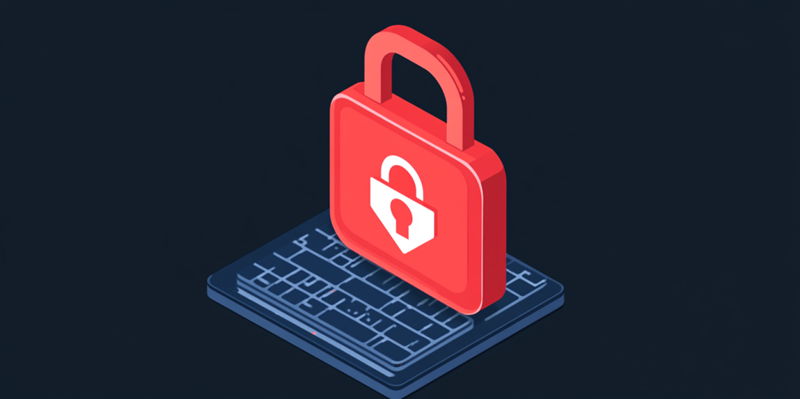A critical security vulnerability known as CVE-2024-52301 has been identified in the Laravel framework, a widely used tool for web development. This flaw poses a significant threat as it allows hackers to gain unauthorized access to applications built using Laravel. The issue emerges from Laravel’s improper handling of user-supplied data, especially when certain PHP configurations are set inappropriately. The register_argc_argv directive, if enabled, can be manipulated through URL query strings, altering the system environment during request handling and opening the door for attacks.
Impact on Various Laravel Versions
Affected Versions and Potential Exploitation
The vulnerability affects multiple versions of Laravel, including versions below 6.20.45, versions 7.0.0 to 7.30.7, 8.0.0 to 8.83.28, 9.0.0 to 9.52.17, 10.0.0 to 10.48.23, and 11.0.0 to 11.31.0. The exploitation of CVE-2024-52301 could result in severe consequences such as unauthorized access to sensitive data, privilege escalation, data tampering, and further system compromise. Attackers capable of exploiting this vulnerability could manipulate how the application manages user input, leading to extensive data breaches and integrity issues. This alarming capability underscores the necessity for developers and administrators to understand the scope and implications of this flaw.
The Laravel development team acted swiftly upon identifying this vulnerability. They released security patches designed to ignore argv values for environment detection on non-CLI SAPIs, effectively addressing and closing the security gap posed by CVE-2024-52301. The high severity level of this flaw has been highlighted with a CVSS score of 8.7, emphasizing the critical need for immediate action. With a network attack vector, low attack complexity, and an EPSS score of 0.043%, it is evident that the threat is both serious and accessible to potential attackers, making rapid patching and mitigation essential.
Severity and Nature of the Threat
The high severity assigned to this vulnerability reflects its potential to cause significant damage if left unaddressed. The CVSS score of 8.7 indicates a critical risk, pointing out how quickly the threat can escalate if exploited. The nature of this vulnerability involving user-supplied data and PHP configurations like register_argc_argv, combined with the ability to manipulate URL query strings, highlights a complex yet accessible attack vector for malicious actors. The low attack complexity means that even less sophisticated attackers can exploit this flaw, increasing the urgency for immediate security measures.
In response to this serious threat, Laravel has issued patches that specifically address and neutralize the vulnerability. By ignoring argv values during environment detection on non-CLI SAPIs, the framework reduces the attack surface considerably, mitigating the immediate risk posed by CVE-2024-52301. Such prompt actions reflect the importance of a proactive security stance in the face of evolving threats. Developers and admins must prioritize the implementation of these patches to protect their applications and users from potential breaches and data losses.
Essential Mitigation Strategies
Immediate Steps for Developers and Administrators
Developers and system administrators are strongly urged to update their Laravel installations without delay to protect against CVE-2024-52301. Timely updates are critical in ensuring that systems are shielded from known vulnerabilities. In addition to applying patches, reviewing PHP configurations and ensuring directives like register_argc_argv are set appropriately are paramount. Misconfigurations can serve as entry points for attackers, hence requiring meticulous attention. Regularly revisiting and securing these configurations can prevent similar vulnerabilities in the future, reinforcing overall system security.
To further bolster application security, implementing strict input validation and sanitization practices is crucial. Ensuring that all user inputs are thoroughly validated and sanitized reduces the risk of data tampering and unauthorized access. Continuous vulnerability scanning is another vital measure, helping to identify and address potential security weaknesses before they can be exploited. By integrating these practices into the development and maintenance process, teams can better safeguard their systems from both known and emerging threats, fostering a more secure digital environment.
Long-Term Security Best Practices
To prevent similar vulnerabilities from occurring, adhering to security best practices is essential. Regular software updates are crucial, as they ensure that systems are protected against the latest threats and vulnerabilities. Developers should practice strict input validation and sanitization to prevent malicious data from compromising applications. This involves meticulously checking all user inputs and securing them appropriately before processing. Regularly reviewing and updating PHP configurations helps maintain robust system security and prevents misconfigurations that could potentially expose applications to attacks.
Fostering a security-first culture within development teams is imperative for long-term success. Encouraging continuous education on the latest security trends and threats can empower developers to identify and mitigate risks proactively. Periodic security training and workshops can enhance team readiness and ensure that security remains a top priority throughout the development lifecycle. By embedding security best practices into the core of development processes, organizations can create resilient applications capable of withstanding sophisticated cyber threats.
Conclusion
A significant security vulnerability, designated as CVE-2024-52301, has been discovered in the Laravel framework, which is a popular tool for web development. This serious flaw presents a notable risk, as it can permit hackers to gain unauthorized access to applications constructed with Laravel. The root of the problem lies in Laravel’s incorrect handling of user-supplied data, particularly when certain PHP configurations are improperly set. Specifically, the register_argc_argv directive, when enabled, can be exploited via URL query strings. This exploitation can manipulate the system environment during request handling, thereby creating an opportunity for attacks. The vulnerability underscores the need for developers and system administrators to review and reassess their PHP configurations and practices to mitigate potential risks. Ensuring secure handling of user data and proper configuration settings is crucial to protecting applications from such threats. Immediate attention and corrective measures should be prioritized to safeguard the integrity and security of web applications built on the Laravel framework.

